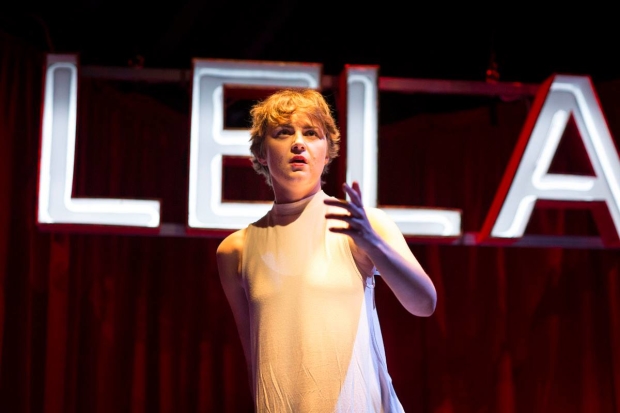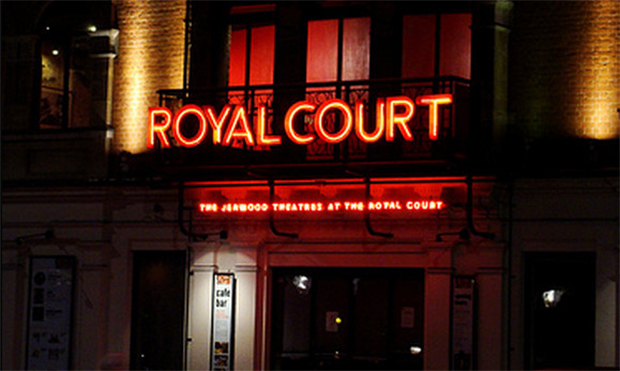Lela & Co. (Royal Court)

© Helen Maybanks
Lela sits onstage, her name in neon lights. This is her show and it’s her story: a monologue, the script says – only she’s constantly interrupted by men. Whenever she sings, a male voice joins in – no, it takes over. It drowns her out. As Lela speaks, the men in her life contest her account. One by one, they belittle her – "little girl," "little flirt," "little Lela" – until she absorbs that sense of herself and her whole world starts to shrink.
You think you’ve got the measure of Cordelia Lynn‘s play. As Lela talks you through her childhood – the quick-fisted father who scolds her for ingratitude, the letchy lectures from her older sister’s boyfriend, the pain of her first time – Lela & Co. looks like a. n. other play about patriarchal subjugation. These men, all played by David Mumeni, infantilise her. They pop her on their knees and keep her sweet with candyfloss. Each interruption is more galling than the last.
However, Lynn’s play takes a turn for the worse. No, it’s much more than that. It plunges into darkness, drops into the blackest of black holes. You can’t help but think of Blasted, and the explosion that rips Sarah Kane‘s play apart. Lela’s new husband takes her back over the border, into a repressive regime, into the middle of a war zone, and he locks her up. He locks her up in a tiny room with a scuzzy mattress and a candle for company, and he whores her out. For years. Soldiers come and go – more and more of them, as margins dictate. It’s a family business: Lela & Co. The kind ones bring their own condoms.
Largely played in pitch black, Jude Christian‘s production makes this shattering. Its skill is to make everyday injustices seem awful so that awful ones become catatonic – and all without recourse to in-yer-face imagery. Violence is represented with admirable restraint and responsibility. If anything, it gains from going unseen.
What’s never clear – and good thing too – is whether all this really happened. Because things like that don’t happen to women like this, do they? Women that look like Katie West, and she looks like a ruffled Yvette Cooper, don’t get bolted into back rooms and forced into sex. Do they? It’s absolutely on us to decide. Is West playing a woman who looks nothing like she does – bluntly, a non-white woman in a distant war-torn region – or is this just what living in a patriarchal society feels like for women, being fucked again and again and again? Based on a true story, the script says. It could be either – and why should one be any less horrifying than the other?
It’s a discombobulating watch, all the more so because Lynn writes with a kind of reckless abandon, swerving off into stylistic asides including a television advert and a prosecution case. At times, the ambiguity becomes overbearing and the text could use some reigning in (and, yes, the irony of white, male me telling Lynn how to tell her story shouldn’t be lost on anyone.)
Christian’s staging deploys its theatricality brilliantly. Ana Inés Jabares-Pita makes the stage a kind of showbiz boudoir, and Lela’s always slightly at odds with it, her clothes always clashing with the redcurtain. Early on, Mumeni rides roughshod over West: as she speaks, he controls the space, gliding through the audience in his game-show gold suit. Still and confident, he commands our attention, while she, scatty and garbling, slips out of focus. You have to force yourself to listen to her – and, god knows, it’s about time we did. It’s her story, after all.
Lela & Co. runs at the Royal Court until 3rd October.












